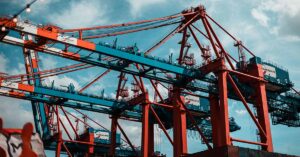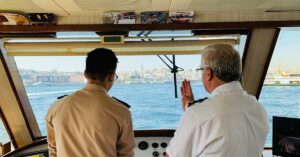Financial Challenges Faced by Filipino Seafarers and How to Overcome Them
Filipino seafarers have long been an integral part of the global maritime industry. With their dedication, hard work, and resilience, they play a crucial role in ensuring the smooth operation of ships worldwide. However, despite their significant contributions, many Filipino seafarers face numerous financial challenges. In this blog post, we will explore some of the common financial hurdles they encounter and offer practical solutions to help them overcome these challenges.
Financial Challenges Faced by Filipino Seafarers
- Irregular Income Streams: One of the most significant challenges Filipino seafarers face is the irregularity of their income. Seafaring contracts typically span several months, making it difficult to maintain a consistent budget.
- High Education and Training Costs: To become seafarers, Filipinos often need to invest a significant amount in education and training, which can put a strain on their finances.
- Foreign Exchange Fluctuations: Seafarers are paid in foreign currencies, which can be subject to exchange rate fluctuations. This volatility can affect the real value of their earnings.
- Family Support: Many seafarers are the primary breadwinners for their families. The pressure to support their loved ones can lead to financial stress.
- Financial Literacy: A lack of financial education can make it challenging for seafarers to manage their earnings effectively and make informed investment decisions.
How to Overcome These Challenges
- Create a Budget and Savings Plan: Developing a detailed budget can help seafarers manage their finances more effectively. They should allocate a portion of their earnings to savings and investments for financial stability.
- Diversify Income Sources: Instead of relying solely on seafaring income, seafarers can explore other income-generating opportunities, such as investing in a small business, stocks, or real estate.
- Currency Risk Mitigation: Seafarers can consider using financial instruments like forward contracts or foreign exchange accounts to manage currency risk and minimize losses due to exchange rate fluctuations.
- Family Financial Education: It’s essential to educate family members on proper financial management. This can help reduce the financial burden on seafarers and ensure their families make informed decisions.
- Emergency Fund: Building an emergency fund is crucial for seafarers. This fund can cover unexpected expenses and provide peace of mind during periods of unemployment.
- Invest Wisely: Seek the guidance of a financial advisor to make informed investment choices. Diversifying investments and understanding risk tolerance can help grow wealth over time.
- Professional Associations and Support Groups: Joining seafarer associations and support groups can provide access to resources, networking opportunities, and valuable information for financial and emotional support.
- Legal Protections: Be aware of seafarer rights and legal protections. In cases of exploitation or unfair treatment, seafarers should know their rights and seek assistance from relevant authorities or organizations.
Filipino seafarers are vital to the maritime industry and contribute significantly to their families and the national economy. However, their financial challenges can be daunting. By proactively addressing these challenges through budgeting, diversifying income sources, and seeking financial education and support, seafarers can achieve greater financial stability and secure a more prosperous future for themselves and their families. It’s essential to remember that overcoming these challenges is not only a personal endeavor but also a collective effort that can benefit the entire seafaring community in the Philippines.
Share this content:















Post Comment